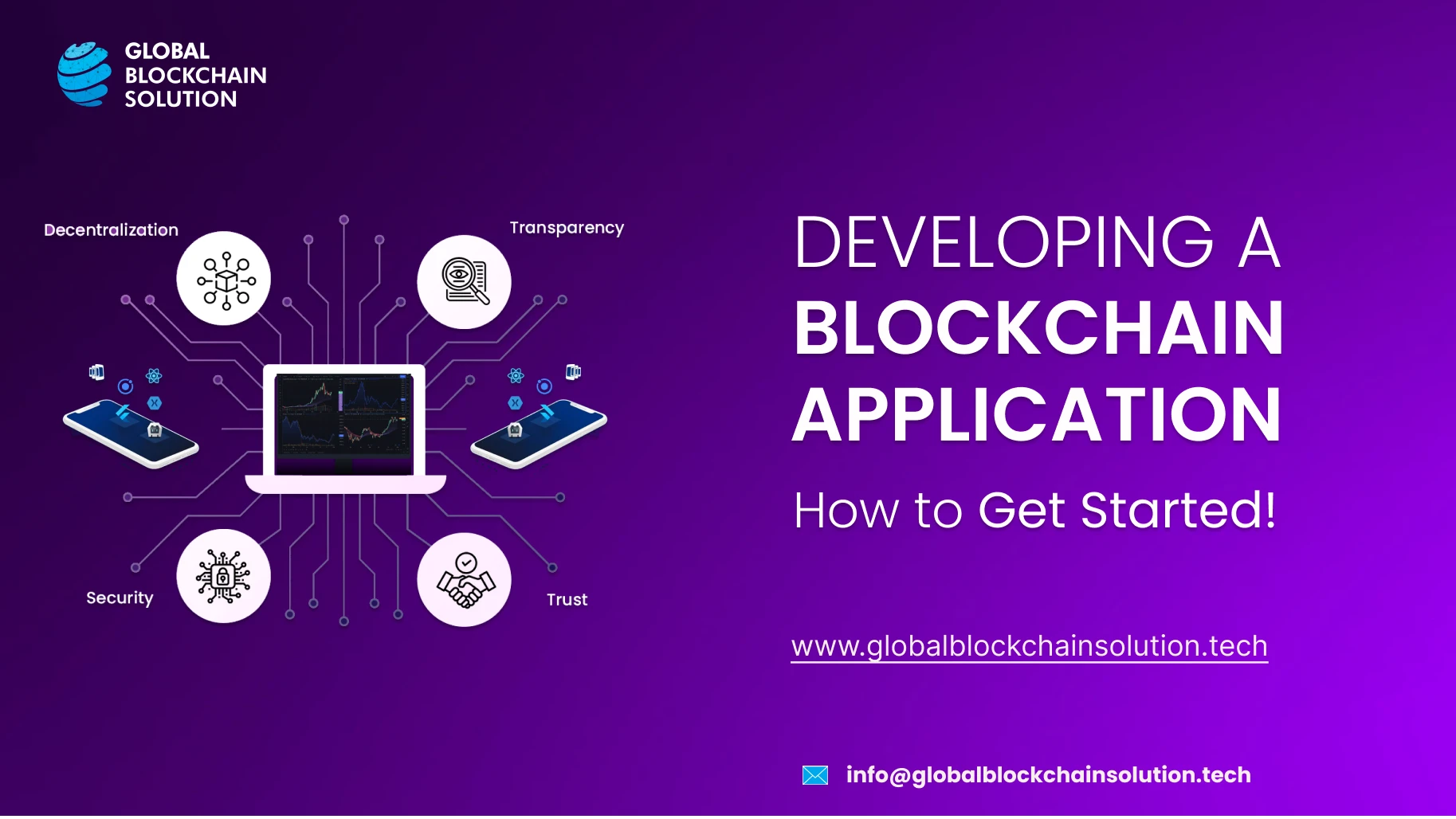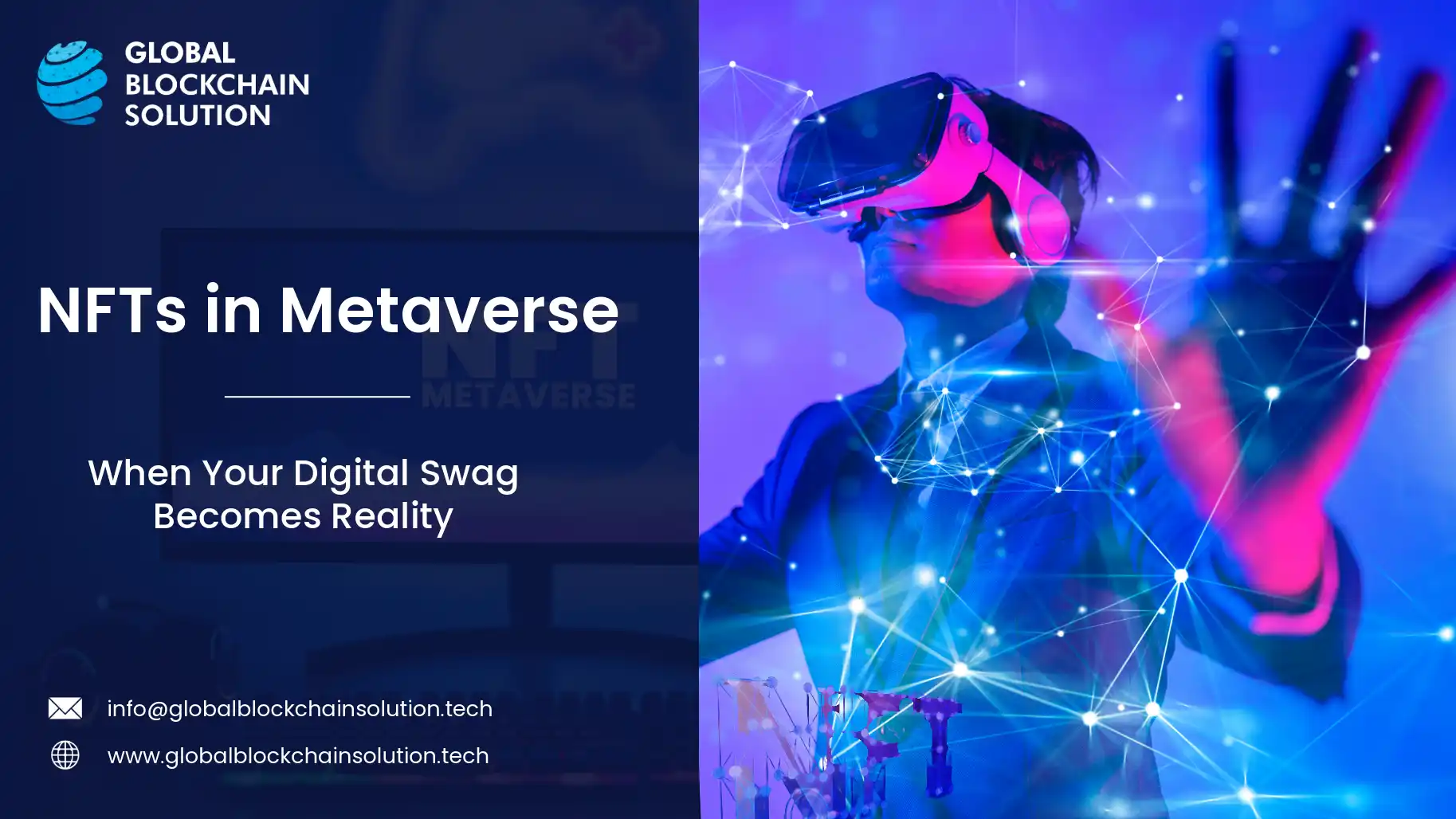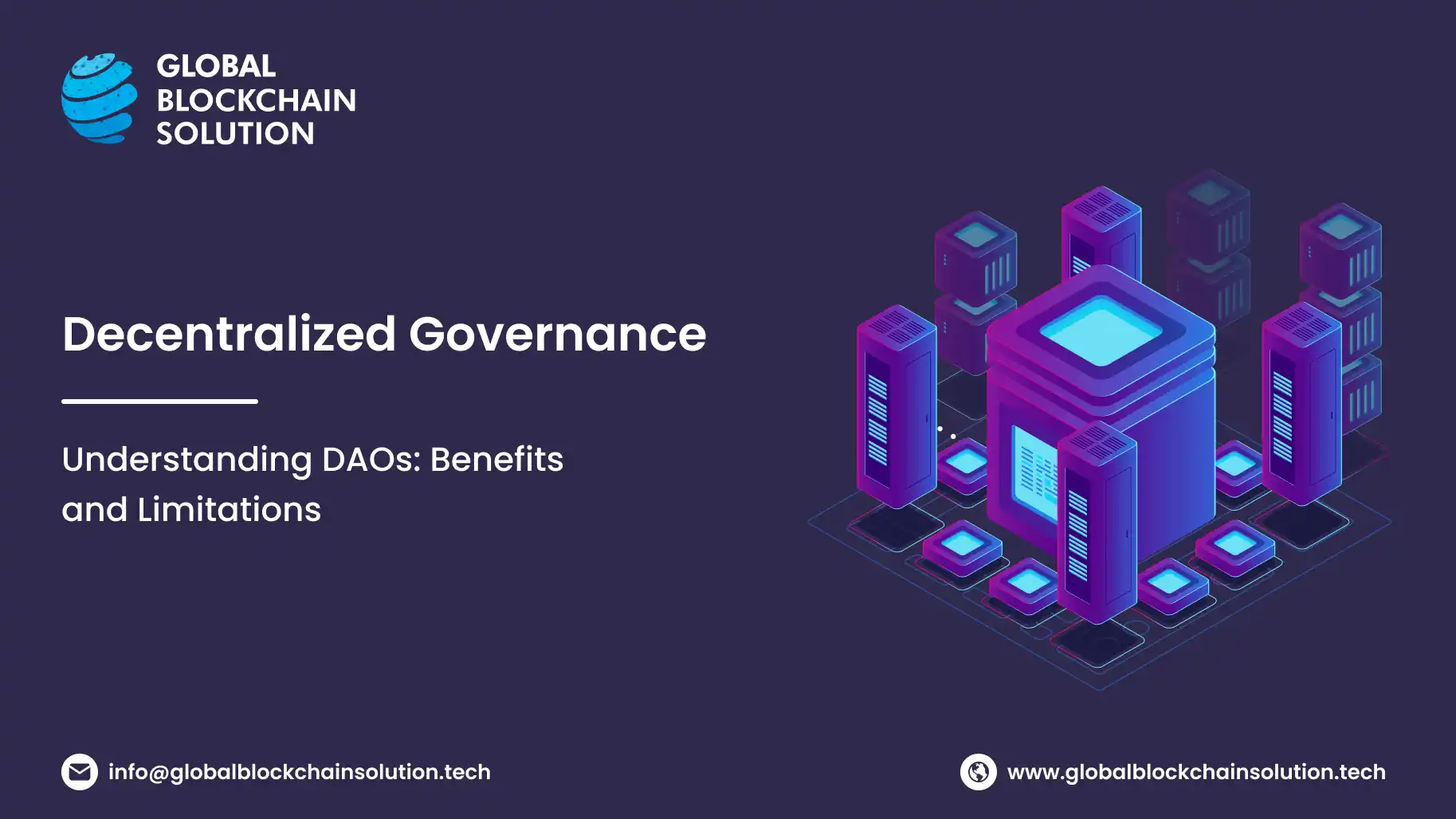Welcome to Global Blockchain Solution , where we delve into the intricacies of the ever-evolving cryptocurrency market and the blockchain ecosystem. Whether you're a seasoned pro in the crypto space or just starting to navigate the world of crypto app development, we are here to help! Today, we will delve into the nuances of blockchain app development with cryptocurrencies as our guiding star. Maybe you want to create your own cryptocurrency or perhaps, want, to setup a full-fledged cryptocurrency exchange. You will need an app for it!

Whatever the implementation might be, our team of experts is here to guide you every step of the way. In today’s blog, we'll break down the technicalities of crypto app development and provide you with the tools and resources you need to create a seamless user experience. For instance, if you’re delving into crypto trading, this comprehensive cryptocurrency guide will inform you about all the features you need from asset tracking to setting up price alerts and automated trade execution.
So, be ready to make your mark on the crypto market. Join us as we navigate the exciting world of cryptocurrency development and stay ahead of the game.
Know Your Development: Different Types of Cryptocurrency Applications
Different consumers have different sets of requirements. It means you have a range of options when it comes to crypto app development.
From crypto wallets to trading exchanges to crypto payment apps and even gaming applications, every crypto implementation is purpose-built and has unique features.
You need to be familiar with the existing crypto apps to make informed decisions about which path to tread.
1.Crypto wallet app
Using a crypto wallet app, you can store and manage digital assets such as Bitcoin , Ethereum , Ripple , Decentraland , and Litecoin .
These apps transfer and receive cryptocurrencies to the user's wallet address (much like a bank account). They work by creating unique public addresses , a string of characters for receiving crypto, and a private key, used to send crypto from the user's address.
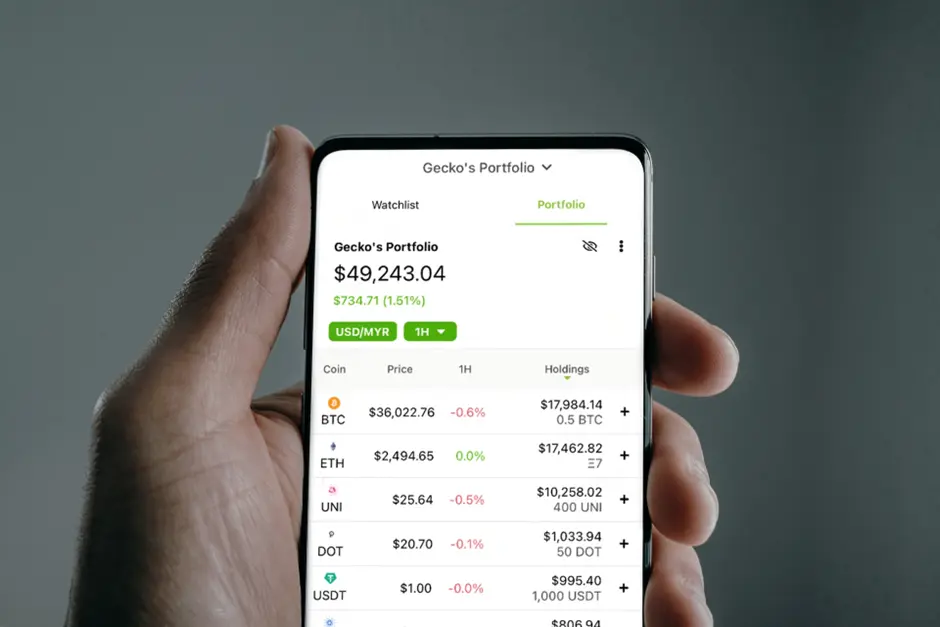
There may have built-in support for real-time asset valuation tracking, account restore functionality, and a slew of security options like two-factor authentication, PINs, biometrics, and more.
A few examples of crypto wallets include Coinbase Wallet , Metamask , and Exodus .
Salient Feature:
- Blockchain integration: Integration with blockchain networks for safe digital asset storage and administration.
- Cryptography: Usage of public-private key cryptography.
- Security: Security features like two-factor authentication and seed phrase backup.
- Seamless User Interface (UI): Great UI and UX design for simple transaction execution and navigation.
- Multi-currency support: Multi-currency support to manage various types of assets.
Should also consider:
- Multi-currency support: Integration with multiple blockchain networks and development of a system to manage different types of assets.
- Multi-currency support: Integration with multiple blockchain networks and development of a system to manage different types of assets.
- In-app exchange feature: Integration with cryptocurrency exchanges and development of a system to execute trades within the app.
- Support for hardware wallets: Integration with hardware wallet providers such as Ledger and Trezor.
- Advanced authentication: Biometric data and facial recognition for app usage.
2. Cryptocurrency Trading App
Crypto trading apps are used on numerous exchange platforms to buy and sell cryptocurrencies.
They let users to track the value of various assets, set up price alerts, and conveniently execute their trades. These platforms further include complex charting tools, trading indicators, and order types to support traders make more informed decisions.
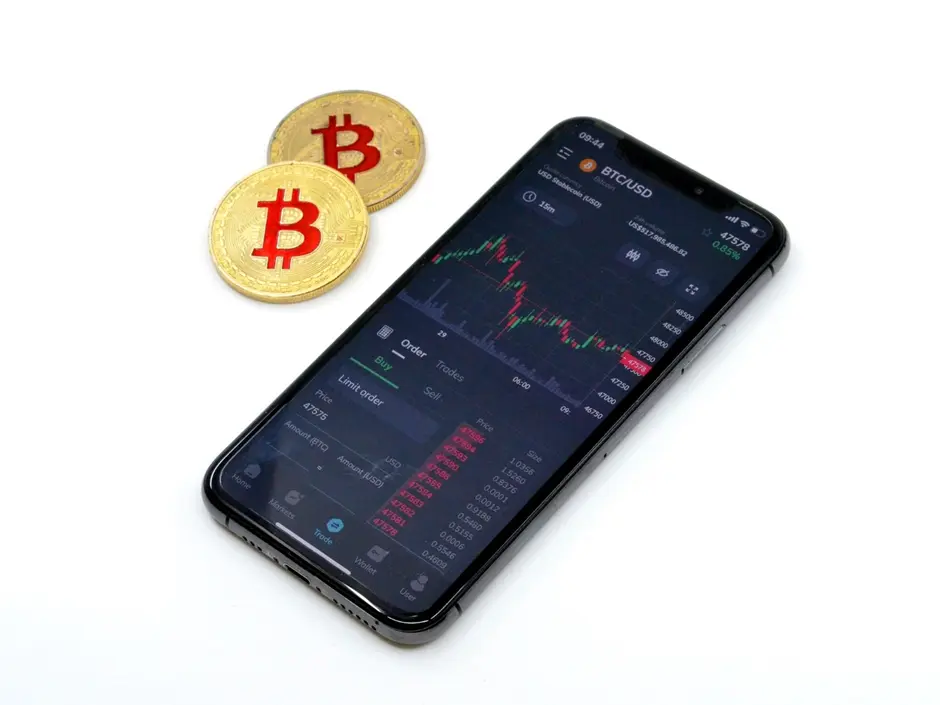
Binance , Coinbase , and Robinhood are among some of the prominent cyprocurrency trading apps.
Salient Feature:
- Crypto Exchange Integration: Access to multiple cryptocurrency exchanges for real-time settlement of digital assets.
- Interactive Charts: Real-time market data analysis and interactive chart building.
- Advanced features: Automated trading calls based on stop loss and target, margin trading, etc.
- Portfolio tracking: For users to track their assets and gains/losses over time (both realized and unrealized).
Should also consider:
- Recurring purchases: Ability to set up recurring transactions depending on user preferences.
- Social trading: Integration with social media platforms and the development of a system to mimic the moves of successful traders.
- Advanced charts: The ability to generate advanced charts using advanced technical indicators and market data.
3.Crypto Mining App
Mining apps are used to mine cryptocurrencies by allowing people to participate in a blockchain network for the verification of transactions.
This "mining" process requires users to pool their processing power to the network in exchange for a payout in the form of new or "minted" coins.
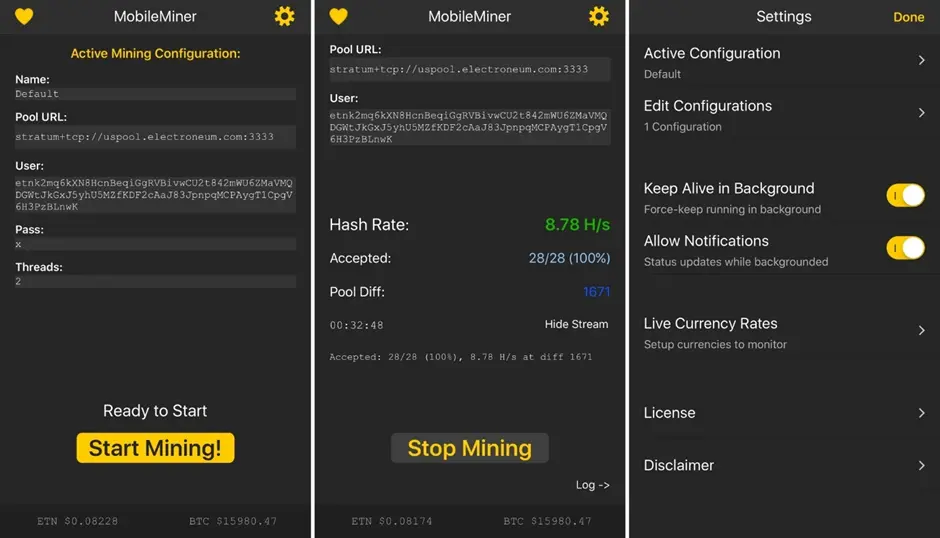
Popular mining applications include ViaBTC, MobileMiner, and Bitdeer.
Salient Feature:
- Integration with blockchain networks for mining participation.
- Mining using the device's computing capacity or cloud-based services.
Must also consider:
- In-app wallet: This necessitates the creation of a secure wallet system within the app.
- Integration with mining pools: Integration with mining pools and development of a system to distribute rewards among pool participants.
- Cloud mining options: Instead of using their own device for computations, users can rent hash power from a provider.
- Profitability calculator A technique for estimating mining revenue based on current network circumstances and device specs.
4.Crypto Payment Applications
Crypto payment apps are used to make cryptocurrency-based purchases like a typical payment application. These apps can be used to make online or in-store purchases that accept cryptocurrency as a payment option. They may include a built-in QR code scanner, allowing users to make payments by scanning a code at the point of sale or conduct a P2P transaction.
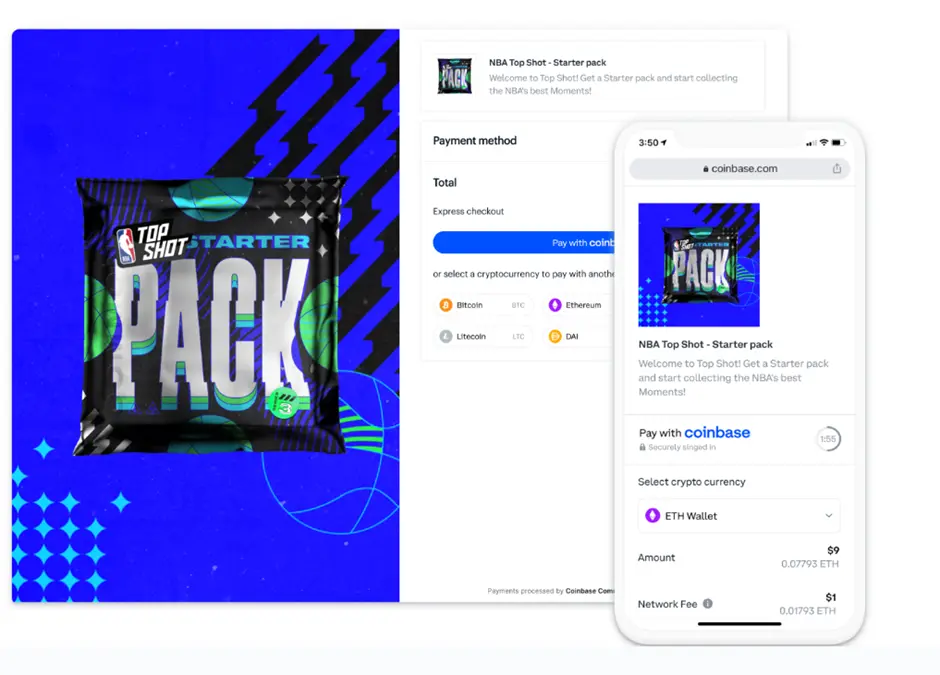
Coinbase Commerce , BitPay , and Coinify are popular crypto payment applications.
Salient Feature:
- Payment processor integration: Integration with payment processors for transaction processing.
- Multi-coin support: Support for a variety of coins.
- P2P (peer-to-peer) transactions
- QR code scanner: This is a function that allows you to scan QR codes for quick and easy transactions.
Should also consider:
- Fiat currency conversion: At the point of sale, you can exchange digital assets to fiat currency.
- Fiat currency conversion: At the point of sale, you can exchange digital assets to fiat currency.
- E-commerce platform integration: Integration with platforms such as Shopify and Magento for seamless integration with online stores.
- In-person transactions: A mechanism for safe transactions in physical proximity such as contactless (tap & pay) payments.
5.Crypto Gaming Apps
Crypto gaming apps are decentralized gaming applications built on top of the blockchain technology. These games employ digital assets (such as cryptos & NFTs) as in-game currency and may allow players to earn additional coins through gameplay.
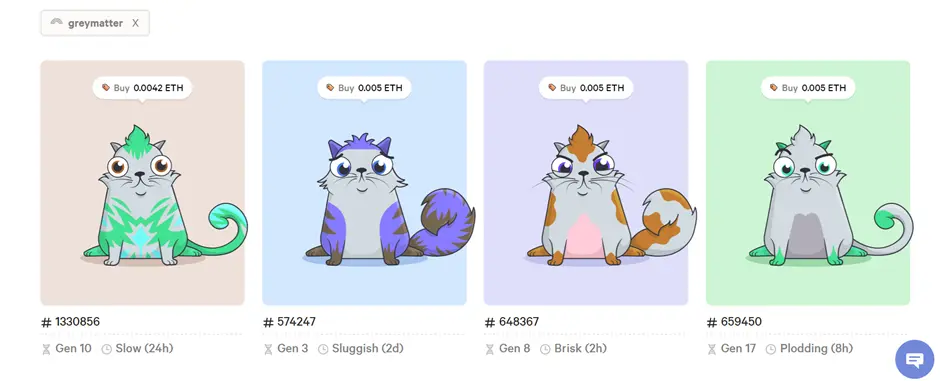
CryptoKitties and Axie Infinity are two popular crypto gaming apps.
Salient Feature:
- Gameplay: Gameplay, concepts, and storyline.
- Game optimization: Optimizations for high performance and low-latency interactivity.
- Blockchain: Implementation of blockchain technology to ensure actual ownership of in-game assets.
- In-game economy: The ability to purchase, sell, and trade in-game items with other players.
Should also consider:
- Non-fungible tokens (NFTs): Use of NFTs for creating unique and rare in-game objects with asset tradability outside of the game.
- Non-fungible tokens (NFTs): Use of NFTs for creating unique and rare in-game objects with asset tradability outside of the game.
- Marketplace integration: Blockchain-based markets for the purchase and sale of in-game assets.
- Smart contracts: Smart contracts for secure and transparent in-game transactions.
6.Crypto News Apps
Crypto news applications help people keep up with the latest events in the cryptocurrency sector. These apps deliver the most recent news, analysis, and research on various cryptocurrencies and blockchain projects to consumers.
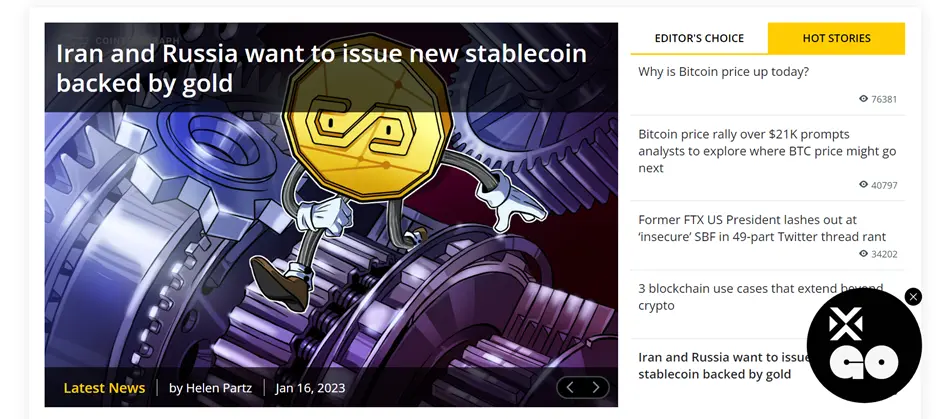
CoinDesk and Cointelegraph are two popular news apps.
Salient Feature:
- Topical news & updates: Real-time market trends and price changes.
- News syndication: Integration with other news sources to provide the most up-to-date news and analysis.
- Push notifications: Notifications for key news and events via push notifications.
Should also consider:
- Exclusive content access: Premium access to exclusive interviews, reports, insights, and other forms of updates.
- Personalization: Customised news feed that allows users to follow certain topics and digital assets of interest. Added personalizations based on the user's preferences.
7.Learning Apps
Learning apps are used to teach people about various facets of the cryptocurrency ecosystem. These apps may offer lessons, quizzes, and other educational resources to help users understand the operation of cryptocurrencies and blockchain technology.
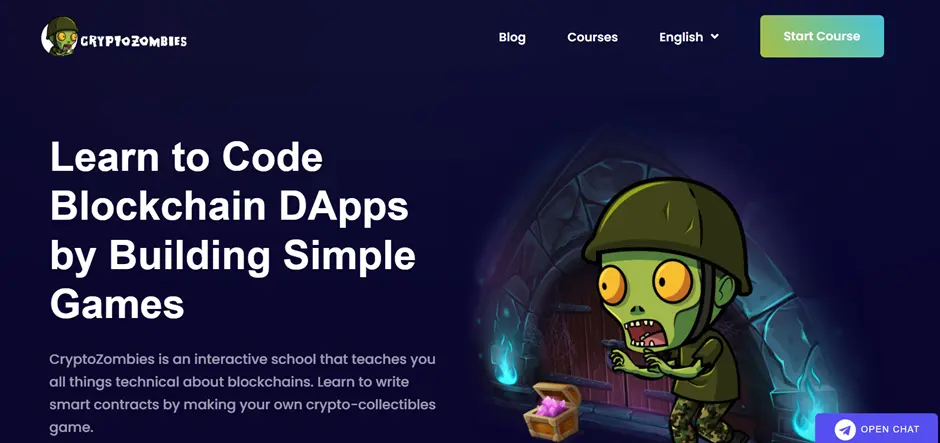
They frequently include interactive modules, which make learning more interesting and enjoyable. CryptoZombies and CryptoChicks are two popular learning apps.
Salient Feature:
- Interactive quizzes: Interactive tutorials and quizzes to encourage user participation.
- Community access: Access to a supportive and networking community of like-minded learners.
- Progress tracking: Monitor the user's progress and provide tailored feedback.
Should also consider:
- Gamification: A system to make learning fun and engaging with gamified modules, rewards, leaderboards, and prizes.
- Learning resources: Access to e-books, video lectures, and other learning resources.
8.Staking applications
Staking apps allow users to earn incentives by storing digital assets and participating in the validation of transactions on specific blockchain networks. This is referred to as staking, and it is frequently used as an alternative to mining.
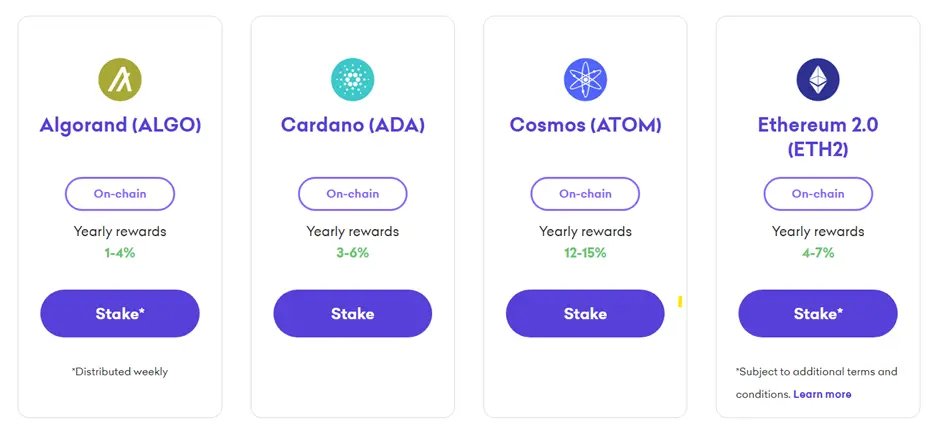
Kraken , Gemini , KuCoin, Coinbase, and Binance are prominent staking platforms.
Salient Features:
- Blockchain network integration: Integrations with blockchain networks for staking participation.
- Monitoring: Monitoring of staking payouts and network status in real time.
- Multi-asset support
Should also consider:
- Automatic delegation: A method for delegating staking power to expert validators in exchange a certain fee.
- Staking pools: Users can pool staking power to maximise the likelihood of collecting rewards.
9.Crypto eCommerce apps
Crypto eCommerce apps are decentralized marketplaces for exchange of goods and services.
These apps come with the ability to conduct and validate eCommerce transactions, track various assets (and their values) in real-time, and have support for several payment methods, including cryptocurrencies and traditional fiat currencies.
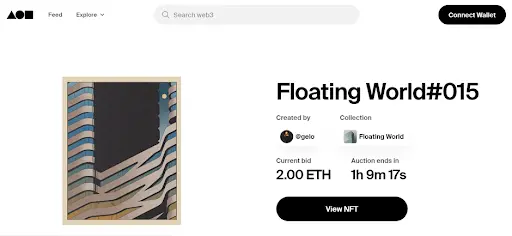
Foundation, OpenSea , and Rarible are some great examples of crypto eCommerce marketplaces.
Salient Features:
- Decentralized, P2P commerce
- Payment processors: Integration with payment processors for transaction processing.
- eCommerce Integrations: Integration with e-commerce systems such as Shopify and Magento for simple online store integration.
- Multi-currency support & pricing: Support multiple currencies and show product prices based on user-selected token.
- Crypto-based loyalty programme: Cryptocurrency-based rewards for recurring purchases.
Salient Features:
- AI product recommendation.
- Personalized search results.
- "Frequently Bought Together" feature.
So, these were some of the paths that you can explore to build your crypto application or platform.
Now, let’s have a look at how your crypto app development gameplan should be.
How to Create Your Own Cryptocurrency App: A Comprehensive Guide
Building a mobile app for the cryptocurrency business can be a challenging endeavour due to the dynamic nature of the market. However, by carefully analysing various solutions, technologies, tools, and processes, you can easily create a high-potential cryptocurrency app - the one that simply stands out in the market!
Here's an overview of how your crypto app development roadmap should look like.
1.Define your app's purpose and features
First, you need to specify the app's goals and functionalities. here must be a clear understanding of the app's goals and intended functionality before any development work can begin.
Consider including a wallet, trading engines, and mining potential as fundamental elements. Then, think of adding advanced functionalities like multiple languages, automatic price adjustments, and push notifications.
Think about who you're making the app for. Make sure all of your features are useful to them.
2.Research the market
To make a crypto app that catches the eye, it's important to study your competitors and learn which features people really want.
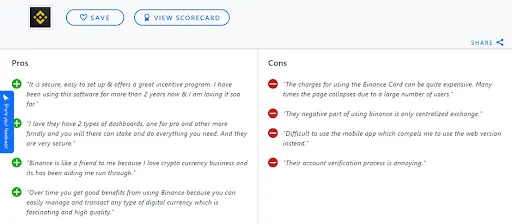
Use user reviews to learn about the problems with competing apps, features that are not yet available, and investigate cutting-edge market trends like the rise of decentralised finance (DeFi) to guarantee your app's continued viability.
3.Select a Development Environment
You could build an app for iOS, Android, or both, or you could build a cross-platform app with tools like React Native or Flutter . Pick the platform(s) that maximize the exposure to your target demography.
4.Pick a blockchain platform
Your blockchain platform will have a direct impact on your app's scalability, security, and functionality. Ethereum, Hyperledger Fabric, Cardano and others are all viable choices.
Your key considerations must include the cost to utilise the blockchain platform, the level of support available, and the specific use-cases the blockchain platform will be best suited for.
5.Hire a development team
Enough can't be said about the importance of development team that you work with.
Every feature that you decide, every integration that you make, all loading events that takes place on your app, every API call, and every read-write event that takes place on your server will be determined by your development team.
In other words, it will not only be responsible for turning your vision into reality but will also have to navigate the technical challenges that arise. It will have to optimize each interaction such that your user experience remains flawless and your API and server bills remain down to the ground.
So, make sure to hire blockchain experts. To be sure they can handle the complexities of a blockchain deployment, hire a team with expertise in this area. At Global Blockchain Solution, we know the ins and out of cryptocurrency and blockchain development. For instance, do you know that your entire chaindata can corrupt if a single block gets awry? And it’s possible to do so by even closing a terminal abruptly after sync.
If you want to save yourself from such headaches, make sure that GBS has your back. Contact us now.
Feel free to consider any other blockchain app development company in the market as well. Just make sure to get your development team right!
6.Design and develop the app
Work closely with your development team. There will be multiple cycles of testing and refinement in this phase. Using a design system like Ant Design or Google's Material Design , you can keep the crypto UI/UX consistent.
The app should also be properly tested before release. So, it's a good idea to use methodologies like Test-Driven Development (TDD). Such practices will ensure that the testing ideology is deeply embedded into your development framework.
7.Test and debug the app
After your development, test and debug your app to make sure it is working as intended.
Use automated testing tools like Appium and Robotium to check the app's functionality across a wide range of devices and operating systems.
Additionally, opt for beta testing platforms like TestFlight or Google Play Beta to collect feedback from actual users and fine-tune the app before it is released to the public.
8.Launch the app
Once you are satisfied with your application, submit it to the App Store or Google Play store.
Consider a soft launch strategy ,used by giants like Facebook, to test the app with a select set of users before releasing it to the public.
App Store Optimization (ASO) is another strategy to think about if you want your app to be easily found by users.
9. Promote and market the app
Promote your app to a wide audience by using traditional and non-traditional methods of promotion, such as social media, advertising, and public relations.
Create a landing page to advertise your software and think about using paid advertising channels like Google Ads, Facebook Ad Manager , etc.
Incentives like referral programmes can help you spread the word about your app and encourage people to use it. It is also a good idea to engage influencers and media to maximize your outreach as well.
Lastly, ensure maximum visibility across crypto-focused groups, communities, and platforms such as Twitter, Reddit, Discord, CoinDesk, Cointelegraph, etc.
10. Monitor and update the app
Repeatedly check your app's statistics to see if anything needs fixing or updating, and keep an eye on how it's being used. Track user activity with analytics software like Google Analytics or Mixpanel to know where your app needs to be enhanced.
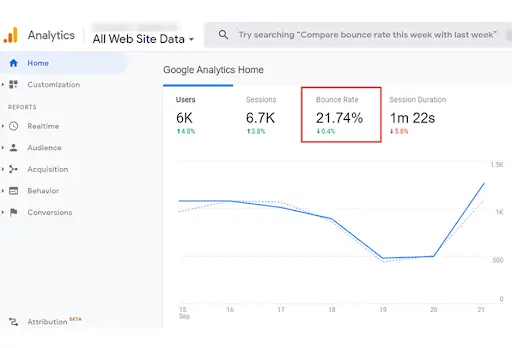
Consider using a feedback system, such as Apptentive or Helpshift, to gather feedback from users and address any issues they may have.
In summary, creating a cryptocurrency mobile app is a complex and multifaceted process that requires careful consideration of available options in terms of solutions, technologies, tools, and processes. It is also important to ensure compliance with all relevant laws and regulations and to have a clear plan on how to handle security and data privacy.
If you have any questions or need any help, our team of seasoned experts is always here to help. Contact us and we’ll get back to you in no time. Better yet, give us a call on +1 (765) 896-5271 or leave a WhatsApp message on the same number.
Before you go…
GBS blogs are typically dedicated to providing you with the knowledge and insights to create your own blockchain, develop your own cryptocurrency, and even create your own crypto app. So, keep posted and subscribe to our newsletter. It has its worth weighed in BTC Gold. *Wink*

